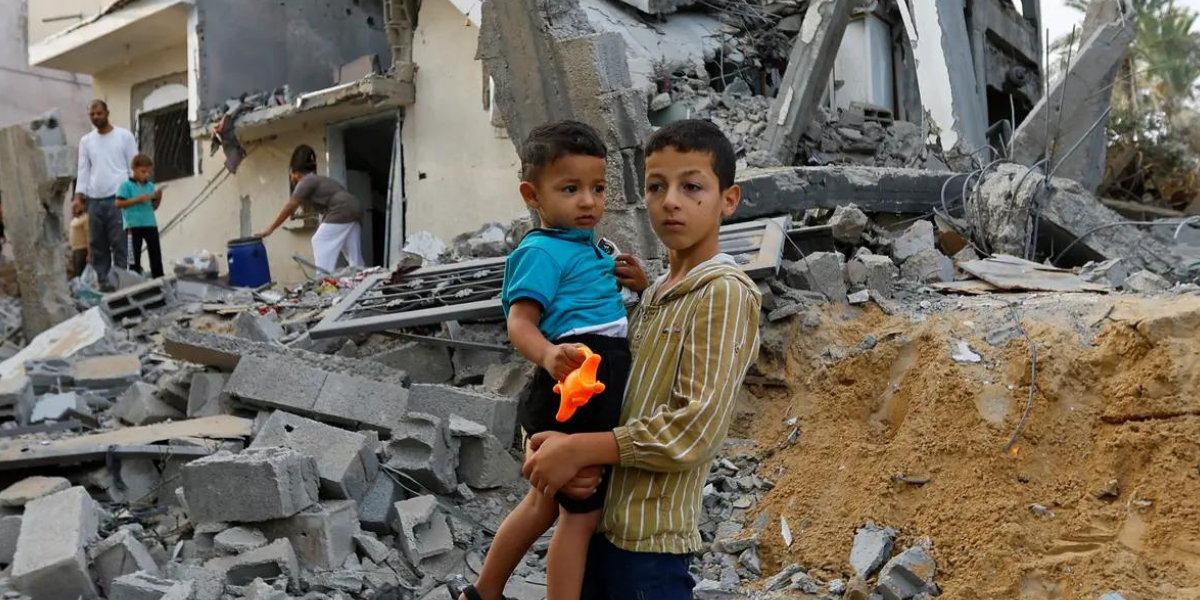Gaza’s future in the hands of the present form of authority in Palestine is not suitable, says Israel’s Prime Minister Benjamin Netanyahu.
The Palestinian Authority should not supervise or take charge of the devastated Gaza Strip in its current form, Netanyahu suggested in his last speech.
Israel’s recent bombardment, airstrikes, and ground invasions demonstrate their determination to destroy the terrorist organisation Hamas. Though Israel claims it will maintain general security in that area, no one has stated who will rule the enclave after the war.
Following the October 7 cross-border assault, the present number of casualties has crossed 10,000 in Palestine. Even after many appeals and emergency meetings, Prime Minister Netanyahu stood still on his ground, refusing the need for a ceasefire in their conflict. His decisions have made several backlashes from around the world but the PM seems to refuse criticism to stand beside his own country.
Following Secretary of State Antony J. Blinken’s visit to the West Bank last week, the United States declared that Israel would not be allowed to remain in the enclave once the war ended and mandated that the governance of Gaza be reunited with the neighbouring West Bank, which is partially administered by the Palestinian Authority (PA).
The exchange of statements took place after Palestinian President Mahmoud Abbas said on Friday that the PA was considering the possibility of ruling the Gaza Strip in the future, to which Netanyahu said that it rather should not. At a news conference, Israel’s PM aired his prevailing grievances over Palestine’s school syllabus, which he says fuels hatred against Jews.
The placement of the IDF (Israel Defence Force) and engagement in ground battles in a northern refugee camp while rejecting rising international calls indicates that the PM is determined to hold his ground.
According to the United Nations’ latest reports, Israel’s ground attacks and shelling have been intensifying around hospitals in Gaza and the northern part of the area, with many being directly hit by the military. Contact with Al-Shifa was also out of reach.
Since the counter-attack, Israel has stopped the transportation of aid and meals into the city, and over three internet breakdowns have taken place in Palestine. The accusation of Hamas using the hospitals as command centres and transporting wounded Hamas terrorists through the Rafah border was also made by Israel while imposing that those civilians who wanted to leave the area have safe passages to do so.
Pro-Palestinian Rallies around World and Rise of Antisemitism
After Germany and Canada, it is time for London. With over 3,00,000 protesters rallying up as pro-Palestinians, the march has turned into a divisive political issue in the UK, while police arrested dozens of English nationalists for causing disruption.

The rest of Europe has shown visible antisemitic behaviour in their latest protests against Israel; however, a change of course took place in France as more than 180,000 people came together in solidarity to voice their views against antisemitism and the Israel war. Surprisingly, the March in France included prominent political figures from the far right to the far left, including Prime Minister Elisabeth Borne.
Meanwhile, at the joint Arab-Islamic extraordinary summit in Riyadh, Iranian President Ebrahim Raisi demanded that Muslim nations arm the Palestinians if Israel’s attacks continue.
It was the first visit to the kingdom by an Iranian president in office in over ten years. Just thirty more aid trucks were able to cross the border from Egypt on Friday, as another 30,000 people fled northern Gaza for the southern areas.
Emmanuel Macron, the president of France, called for a ceasefire and told the BBC that there was “no justification” for the bombing of Gaza.



